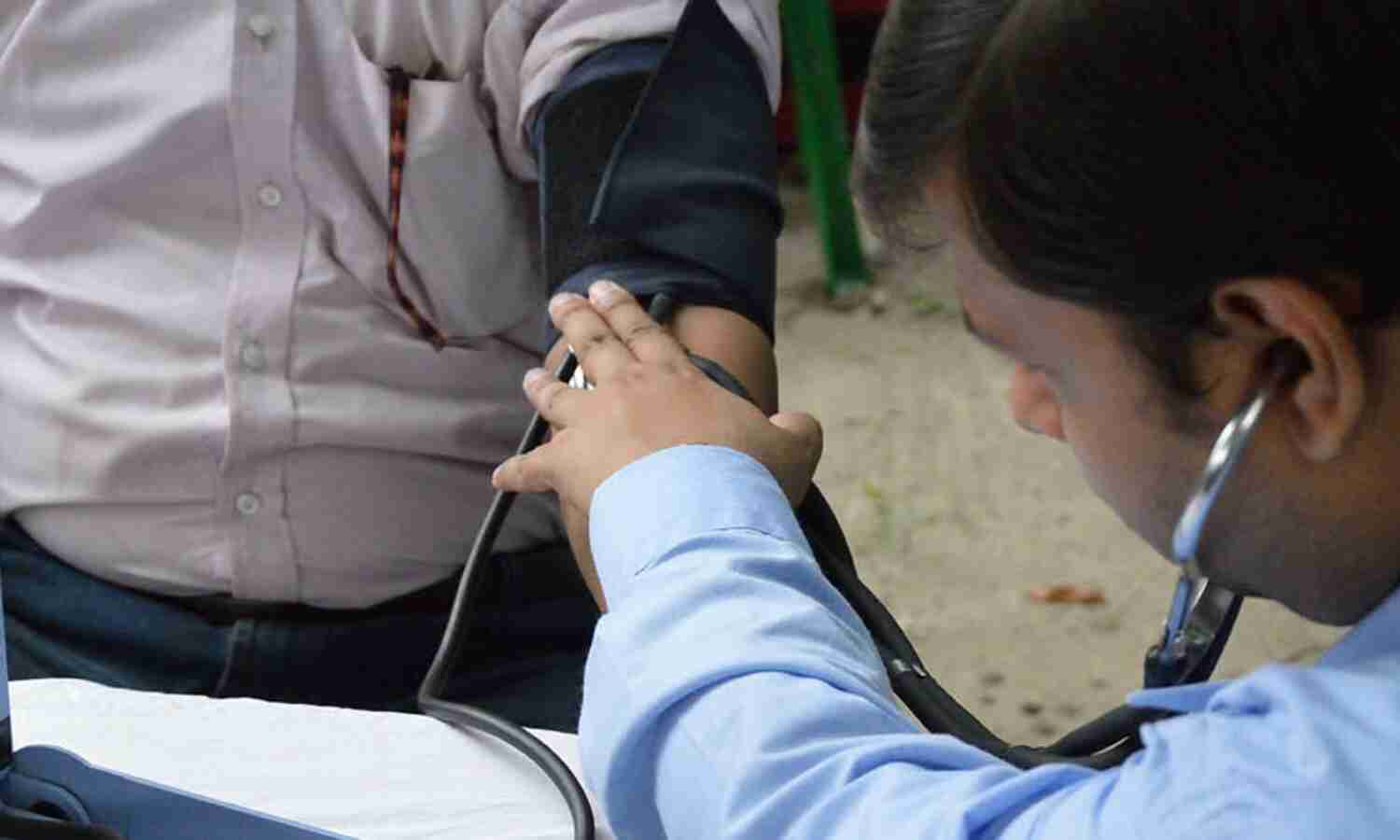If You Are Among India’s Wealthiest People, You May Have Hypertension

Nearly 13% women and 18% men aged 15-49 in the highest stratum of the wealth index have hypertension (high blood pressure), according to data from the National Family Health Survey, 2015-16 (NFHS-4).
This is the first time the NFHS has included the measurement of blood pressure.
The wealth index was calculated on the basis of ownership of various consumer goods, such as a television, bicycle or car, and housing characteristics, such as source of drinking water, toilet facilities, and flooring material. Households are categorised into five equal groups called quintiles.
Hypertension, also known as high or raised blood pressure, is a condition in which the blood vessels have persistently raised pressure, according to a global brief on hypertension by the World Health Organization (WHO).
Hypertension is responsible for at least 45% of deaths due to heart disease and 51% of deaths due to stroke (caused by the interruption of the blood supply to the brain) globally, according to WHO.
The prevalence of hypertension increased four percentage points from the lowest (9%) to the highest (13%) in the wealth index among women and seven percentage points between lowest (11%) to highest (18%) in men.
In 1990, non-communicable diseases (NCDs) accounted for 37.9% of all deaths--causing about four in 10 deaths in India--IndiaSpend reported on November 14, 2017.
By 2016, the share of NCDs had risen to 61.8%--causing six in 10 deaths in India--an increase of 23.9 percentage points from 1990.
Higher the education, lower the prevalence for women
Women with 12 years or more of schooling have an 8% prevalence (lowest) of hypertension, while women who have less than five years of schooling have almost double the rate of prevalence at 14% (highest).
Men with more than 12 years of schooling and less than five years of schooling have similar rates of prevalence at 16% and 18%, respectively.
Source: National Family Health Survey, 2015-16 (Page 391 & 393); Figures rounded off.
Sikhs, people in Sikkim have high prevalence of hypertension
Nearly 24% Sikh men and 16% Sikh and Jain women have hypertension, the highest prevalence compared with other religious groups in India.
As many as 31% men in Sikkim and 18% women in Sikkim and Assam have hypertension.
Source: National Family Health Survey, 2015-16 (Page 395-396); Figures rounded off.
The overall prevalence of hypertension among women and men is 15% and 11%, respectively.
Urban areas record higher prevalence than rural areas for both men and women at 17% and 12%, respectively.
(Paliath is an analyst with IndiaSpend.)
We welcome feedback. Please write to respond@indiaspend.org. We reserve the right to edit responses for language and grammar.


